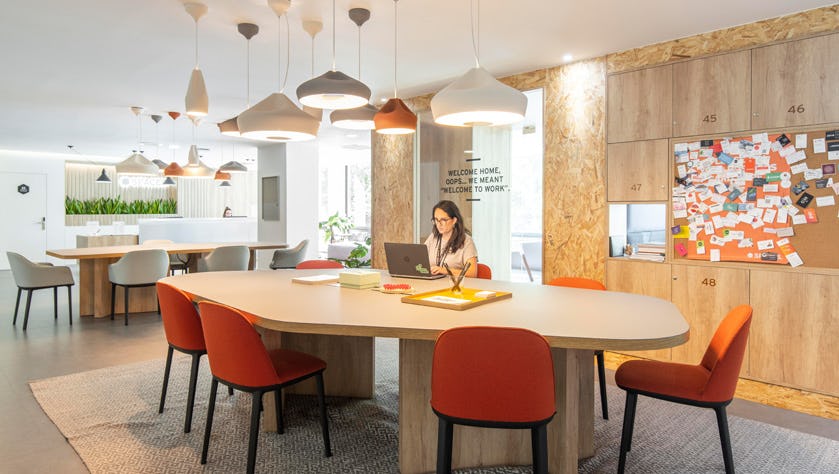
Just because you’re not always in the office doesn’t mean you can’t think about developing your personal brand. To understand why it’s important and how to do it, we speak to award-winning brand consultant Rita Clifton
What do we mean by ‘personal brand’?
Many people have different perspectives on this, but to me, your personal brand is a manifestation and amplification of your best, authentic self. Personal branding is the process by which you think clearly about who you are, what you’re really good at and your goals. Then, to think about how you make that show up in a coherent way that helps those happen – specifically in the skills you develop, the way you behave and yes, how you present yourself.
Why is it so important today?
We live in a very competitive and busy world – if you want to be as influential and valuable as you’d like to be, then developing your personal brand helps make you stand out and also make a bigger difference. It can give you more confidence in yourself too.
What are the challenges of doing it remotely?
Developing rapport with people, collective innovation and making an impact in 2D can obviously be more challenging. Also, business development and relationship building beyond the people you already know is more difficult when you can’t read body language and need to get their attention in the first place.
And what are the benefits?
If you’re not having to spend as much time commuting, you have the opportunity to spend more time reflecting on yourself, your abilities, any new skills you need to fulfil your goals. The other thing about working remotely is that you can potentially be in charge of how you come across – watching yourself on screen, and seeing your mannerisms, how you are managing yourself is quite illuminating!
What things do I need to consider when building my personal brand?
The three key things are: clarity (of who you are, what you’re good at, your goals etc. Do you want to lead a larger business, be an entrepreneur, be a recognised expert at something?); coherence (how does your clarity show. Present yourself in a way that does justice to your quality of skills, and appropriate to the role you want); and leadership (stretching yourself, learning new skills, being visible for your area of knowledge in appropriate media and channels).
Which tools could help me?
I’ve always found the Myers-Briggs analysis useful for understanding yourself, your strengths and areas to watch out for. Also, ‘career anchors’ to understand what lights you up and drains you in your working life. Reading books about personal development is something I’ve found useful, and attending specialist programmes on skills development. Finally, and crucially, learn how to be a good presenter. Videoing yourself speaking is a great place to start.
What should I avoid doing?
Don’t be tempted by the whole ‘fake it till you make it’ thing. It encourages people to create some kind of artificial construct that they think they should be, rather than making the most of who you are, and putting the work in to develop the best of yourself. Trying to pretend you’re someone you’re not is the quickest way of making yourself miserable or even ill.
How will I know if what I’ve done is working?
If you’re being better recognised for your strengths and if you’re progressing along the steps to the goals you’ve set yourself. And if you’re doing it in a way that fits with you and your values.
Is my personal brand set in stone?
No. In fact, I think it’s important to keep on stretching yourself to learn and do more. And you need to keep your knowledge and skills up to date – it’s helpful to present yourself in a way that feels current and relevant, so you don’t feel stuck in a time warp. But the important thing is that you grow and develop as yourself. Again, as your authentic self, who is just making the very most of your potential.
Rita Clifton CBE is the former Vice Chair and Strategy Director at Saatchi & Saatchi and was London CEO and then Chair at the global brand consultancy, Interbrand, for 15 years. In addition to being the founder of BrandCap and a Fellow of the Worldwide Fund for Nature (WWF), she is member of the UK Government’s Sustainable Development Commission, as well a Visiting Fellow at Saïd Business School, University of Oxford. She is the author of Love your imposter: how to be your best self, flaws and all.
Check out our magazine for more useful information about presenting yourself and your business in a professional setting
Share this article
 Read now Five ways to build trust among a virtual workforce
Read now Five ways to build trust among a virtual workforce
 Read now What do Millennials want from their employers?
Read now What do Millennials want from their employers?